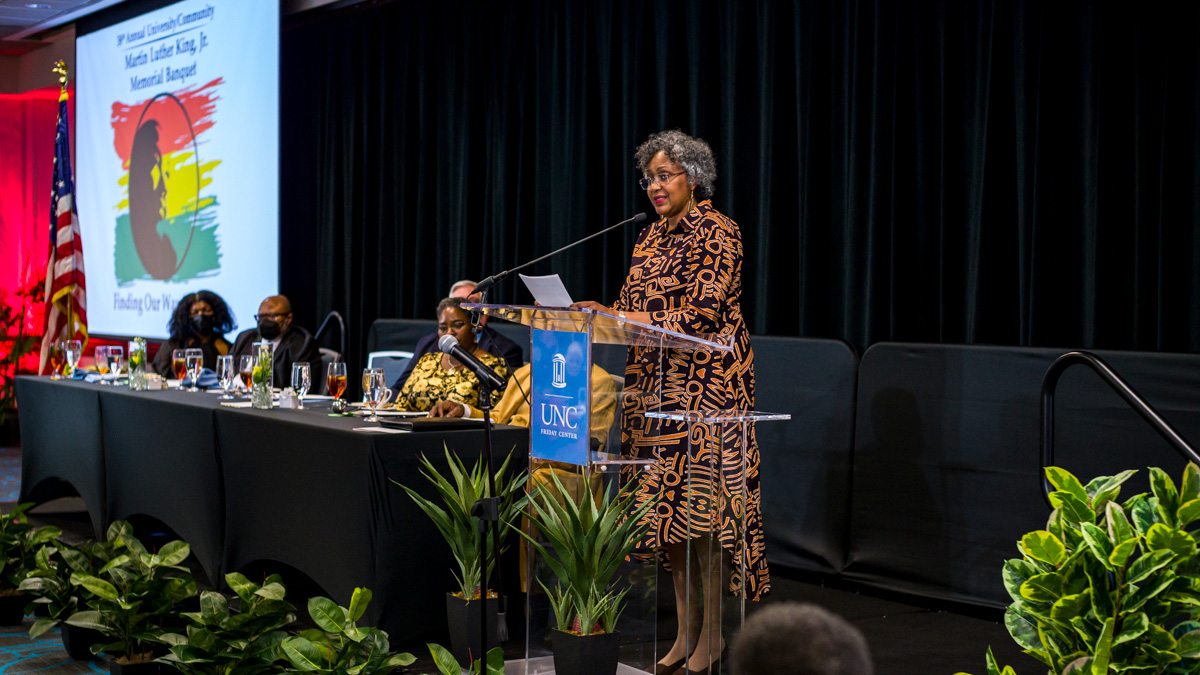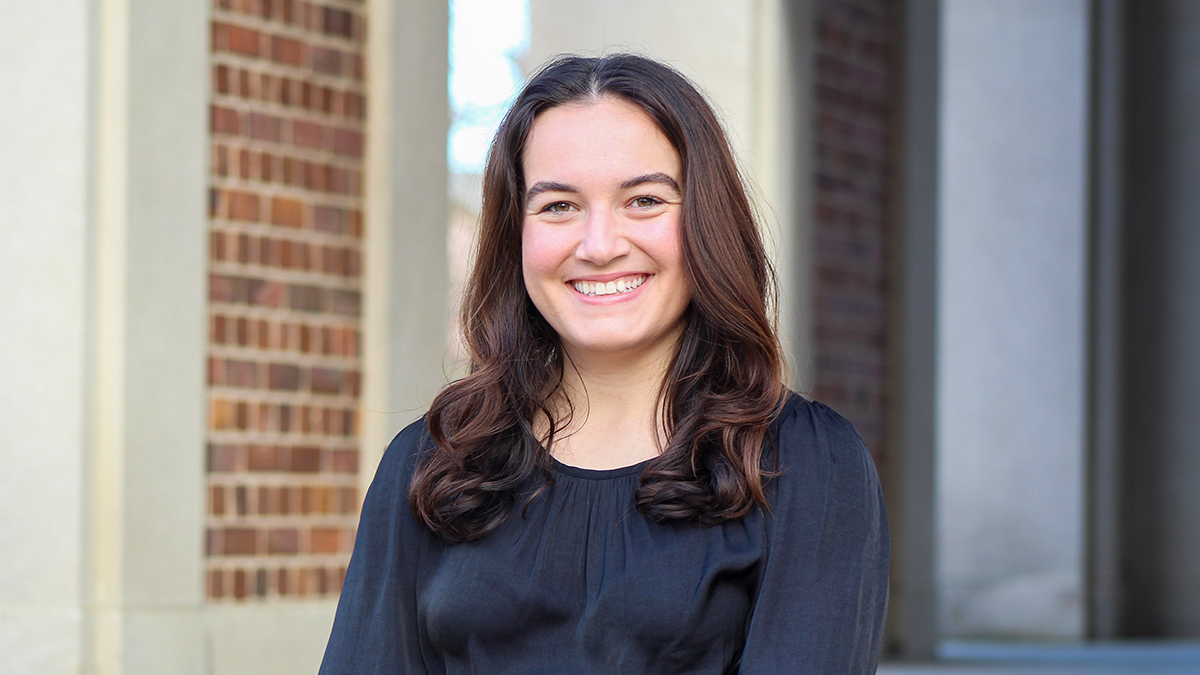Carolina, community celebrate legacy of Martin Luther King Jr.
University leaders, federal and local officials and community members gathered on Sunday to honor the lasting impact of the civil rights leader, celebrate residents for their service and raise money for scholarships.

The Carolina and Chapel Hill community kicked off a week of celebrations in honor of the life and legacy of Martin Luther King Jr. on Sunday night at the 38th annual University/Community MLK Jr. Memorial Banquet.
Hosted by the MLK University/Community Planning Corporation and UNC-Chapel Hill’s University Office of Diversity and Inclusion, the banquet brought together University leaders, federal and local officials and community members to recognize the lasting impact of the civil rights leader, celebrate residents for their service and raise money for scholarships.
“It is an honor to be with you this evening to celebrate, as a community, Dr. King’s legacy and reflect on his impact on our nation and the world,” said Chancellor Kevin M. Guskiewicz. “As the nation’s oldest MLK celebration conducted by a University, I am grateful for all of you for continuing this important university and community celebration of Dr. Martin Luther King’s legacy.”
In his opening remarks, Guskiewicz reflected on King’s “I’ve Been to the Mountaintop” speech and its line, “All we say to America is, ‘Be true to what you said on paper.'” As the leader of a university dedicated to fostering success and prosperity for future generations, Guskiewicz said he poses the same task to Carolina and asked for the community to challenge Carolina to live up to those ideals.
“Our motto is lux et libertas – light and liberty. Now, are we truly doing this? Are we true to what we write on paper?” he asked. “As a university built by slaves, with a legacy of exclusion and injustice, we have not always been true to those ideals. We are constantly evolving, learning and attempting to figure out how to do this and striving to be better.”
Vice Provost for Equity and Inclusion and Chief Diversity Officer Leah Cox, who was the banquet’s keynote speaker, said that she has seen a dedication in the Chapel Hill-Carrboro community that can help Carolina reach that goal.
“It is really noticeable that there’s a fire burning from the folks in this community — just moving and understanding what it means to be just and responsible, to create an equitable and inclusive environment for everyone,” she said.
Throughout her remarks, Cox focused on community and King’s vision of a “beloved community” – one built on love and justice. King, Cox said, spent his life working toward that vision by meeting acts of hate and violence with a focus on love for others and nonviolence.
King’s message of nonviolence, however, did not mean silence or passivism.
“Love by itself will not change people’s minds or inspire them to change oppressive systems,” Cox said. “He understood rebellion as an important part of activism. Direct action often brings about change.”
Reaching the ideal of a “beloved community,” Cox explained, requires a deeper look into King’s teachings as a whole and not latching onto reassuring or comforting quotes from speeches. Oversimplifying his messages prevents us from moving forward, she said.
“If we only take bits and pieces from his speeches, we allow his vision to be misinterpreted, to fit the narrative of those who are not truly allies or aren’t supportive of equity, inclusion or belonging,” she said. “If we sanitize his life and his message, then we perpetuate a deep misunderstanding of how we can move closer to justice and equality. … We must be the people who continue to recognize and not shy away from the conversation of our unjust racial past. In order to affect change, we must be able to bring light to the inequities that we see happening now in our lives to affect change.”
Only as a community working together can King’s vision be brought to life, she said.
“Finding the way forward, to cultivate our community on a mindset to transform not just systems, requires work from all of us,” Cox said. “I cannot promise, but I am almost certain there will be setbacks, painful conversations and a lack of understanding from others. And change may not come swiftly, as we already know. What I do know is this is what we must do to create a community of equity and belonging, to create what we would call a beloved community.”
Carolina will continue to celebrate King’s legacy throughout the week. On Tuesday at 6 p.m., the Hussman School of Journalism and Media will host an MLK Day Of Action with a conversation with Franklin McCain Jr., the son of civil rights activist Franklin McCain who was part of the “Greensboro Four” who staged the sit-in at a Woolworth store in Greensboro. The event will be held in Carroll Hall’s Freedom Forum Conference Center.
The University will later host the annual MLK Jr. Lecture and Awards Ceremony on Jan. 18 at 6 p.m. at Moeser Auditorium in Hill Hall. Civil rights attorney Ben Crump, whose practice has represented the families of Trayvon Martin, Michael Brown and George Floyd, will deliver the keynote lecture.




